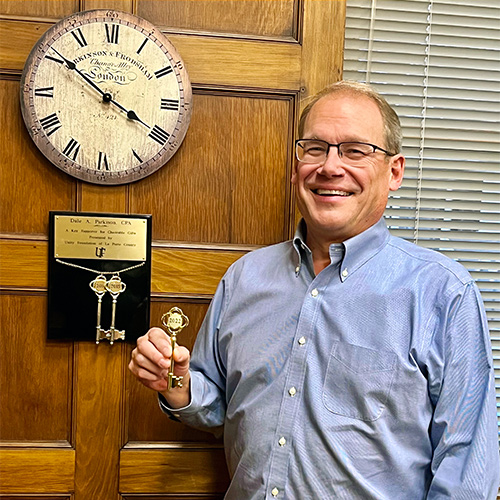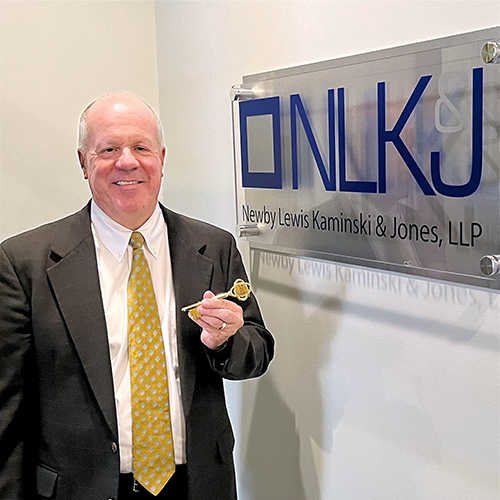Advisor FAQ


Clients expect professional advisors to provide the same level of expert advice about philanthropy as they do regarding estate planning, trust or financial services. Clients even expect their advisors to bring up charitable giving as part of the planning conversation.
When talking with a client about the sale of a business, closely held stock, an inheritance, or other complex transactions, advisors often suggest philanthropy as a solution. Unity Foundation of La Porte County can help facilitate these matters.
Many La Porte County philanthropists recommend Unity as the best choice because of our experienced staff, range of giving options, capacity to accept complicated assets and deep community knowledge.
Frequently Asked Questions
How should I talk to my clients about charitable giving?
Some advisors are reluctant to begin a charitable giving conversation with their client, concerned about making value judgments, especially if the client has not expressed charitable intentions. In reality, identifying your client's philanthropic interests is a wonderful way to deepen the client's trust and strengthen your relationship. This is also an opportunity to develop your relationship with future heirs. To determine your clients' motivation for and knowledge of philanthropic giving, you might start with these questions:
- What has been the most satisfying charitable gift you have ever made? Why?
- Have you volunteered anywhere? Which volunteer experience has been the most rewarding?
- Of your core values, which would you like to express through your giving?
- When you think of the challenges facing our community, what are your greatest concerns? Are any of these the focus of your current or future giving?
- What have you learned about your giving? Would you do anything differently if you could?
- What role has philanthropy played in your family? Is it what you would like it to be, or would you like to change it? Are your children and grandchildren aware of your philanthropy?
- What would you like to accomplish with your giving? Do you think this is possible?
What clients might need my help?
Clients who:
- Hate paying taxes
- Have few or no family members
- Wish to honor a loved one
- Have complicated assets
- Want to improve their community
- Have listed "estate" as beneficiary on anything
- Really enjoy giving and would give more if they knew how
If your clients fit one or more of these descriptions, they may benefit from knowing more about Unity Foundation. We'd be happy to help you make an introduction.
What type of assets can my client use to establish a fund?
Unity Foundation accepts a range of assets including:
- Cash
- Stocks and bonds
- Certified Gift Annuities
- Real estate
- Personal property, such as jewelry and artwork
- Life insurance policies
- IRA assets
What is the Difference Between Using Unity Foundation and Establishing a Private Foundation?
| Unity Foundation Advised Fund | Private or Corporate Foundation | |
| Organization | Established | Not established |
| Tax Exempt? | 501(c)(3) status | Not established |
| Funds Required | $5,000 minimum | Experts recommend $1 million minimum |
| Donor's Role in Selecting Grants | Donor, family or his/her Advisory Committee recommends grants | Donor specifies grants |
| Tax Deductibility of Gifts | Maximum for donor allowed by law | Limited tax deductibility |
| Federal Approvals, Restrictions, Special Taxes | No payout requirements; No Federal excise taxes | Approved by IRS; Requires 5% payout; Fund is charged 1 or 2% tax on income |
| Language for Making Gifts and Creation of Funds | In place | Must create |
| Office / Staffing / Accounting | In place | May need to obtain office and staffing. Must employ accounting. |
| Tax Return (State & IRS) | Included as part of Unity's | Must prepare |
| Contact with Potential Grantees | Unity Foundation provides at donor's request. | Donor must provide. |
| Public Recognition for Donor | Optional at donor's request: fund may be in donor's name or donor may remain anonymous. | Must provide or rely on grantee organization |
| Director/Officer Liability | Covered | May be needed |
| Investment of Assets | Expert Investment Committee; Independent Investment Advisor | Need to obtain |
| Organization Overhead | 1% fee (asset value) | Substantial cost plus 1 or 2% Federal excise tax on income |

